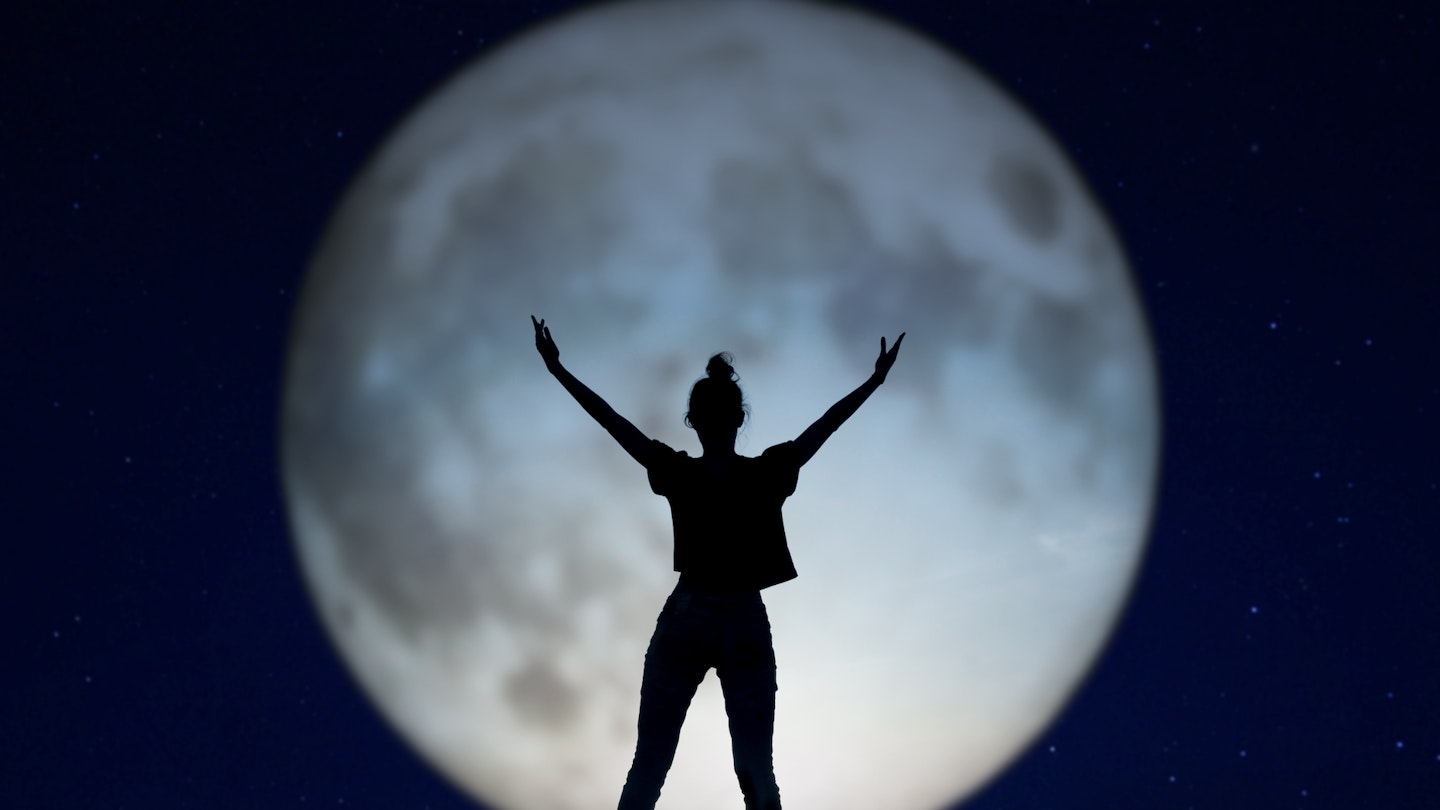Full moons have long been associated with unleashing the moody and the monstrous. And if they can turn men into werewolves, just imagine what they can do for a sleep-deprived mother doused with a flurry of volatile, peri-menopausal hormones (it’s me; I am that frazzled woman). I jest, but having previously dismissed anything related to lunar cycles (beyond being able to coo at a pretty sky) as ‘woo woo’ I had to re-adjust my previously held thoughts on the matter having recently felt the full pelt of the Super Hunter’s Moon on the 17th October (it was not a good night dear reader). Whether it was coincidence or the fact that my hormonal flux is making me more sensitive to anything and everything (and I mean everything) it made me wonder about the impact that full moons - in particular supermoons - have on our cycles. And I’m clearly not alone. According to Google Trends, searches for ‘Beaver Full Moon + Menopause’ have surged by 327% in the past week whilst TikTok currently has 36.3 million posts on ‘Full Moon November 15th, 2024.’
So is there any hard science behind it beyond my presumption that if the moon has the ability to govern tides it’s not too big a leap to imagine that it might also affect us in some way? (My sister who is a veterinary nurse wholeheartedly attests to the full moon effect). Whilst the general consensus among scientists remains divided, there does appear to be evidence that the lunar cycle can influence sleep patterns, emotional stability and hormonal balance, and that influence can be even stronger if you’re already dealing with hormonal changes such as the menopause. 'As a health coach, even without direct scientific evidence of a correlation between the moon and a women’s body, I can see fluctuations in hormones that I can quite easily link to a shift in emotional wellbeing associated with lack of sleep when the Beaver moon rises,' confirms Integrative Health coach Rosie Underwood. 'It’s never lost on me that a women’s monthly cycle is almost to the day, exactly the same as the moon’s cycle.' So what exactly is the Beavermoon and how does it specifically relate to our hormones? We caught up with hormonal health expert Mike Kocsis at Balance My Hormones to find out more.
What is the Beavermoon?
'The Beaver Moon is the name given to the full moon in November, rooted in Native American and colonial traditions,' explains Kocsis. 'This name reflects the time of year when beavers are particularly active, building their dams and preparing for the winter ahead. The Beaver Moon symbolises seasonal change and the approach of colder weather. Occasionally, it coincides with special astronomical events such as a lunar eclipse, making it a significant occurrence in the annual lunar cycle.'
This year’s Beaver Moon will be the last supermoon of 2024 (a supermoon occurs when the Moon’s orbit is closest to the Earth at the same time as the Moon is full) and if you miss it you’ll have to wait 326 days until the next one.
How do supermoons affect our hormones?
'Supermoons impact our bodies in various ways,' says Kocsis. 'The bright light of a supermoon, especially in areas with little light pollution such as the countryside, can disrupt circadian rhythms by suppressing melatonin, the hormone that regulates sleep. This suppression can affect other hormones like cortisol, leading to changes in stress, mood, and reproductive hormones and therefore potentially impacting menstrual cycles and sleep patterns. There is also historical evidence linking full moons to heightened emotions, mood swings, or erratic behaviour, sometimes known as ‘lunar effects’. Many people report heightened emotional sensitivity when there is a full moon or supermoon. Whether this is scientifically proven or a placebo effect, people in menopause might experience more volatile mood swings, or increased anxiety or feelings of depression at these times.'
Can’t sleep? Try this
'There is much you can do to minimize any negative effects of the supermoon on sleep,' says Kocsis. 'Use blackout blinds and sleep masks to minimize light exposure from the moon which can make it harder to fall asleep – particularly if your levels of hormones that help with sleep are already low due to menopause. Maintaining a consistent sleep routine and practising good sleep hygiene is key; create a relaxing wind-down routine, such as turning off screens at least an hour before bed, taking a warm bath or doing some gentle stretching. If you notice you’re feeling more anxious than usual practice stress management techniques such as meditation, deep breathing, or progressive muscle relaxation. Exercise can also aid a more restful night but avoid intense workouts close to bedtime. And finally, limit your caffeine intake and avoid in the afternoon and evening.'
And if you’re still a wide-awake, raging banshee? Catch mother nature’s finest lightshow at 9.25pm on Friday 15th November and marvel through the muddled hormones.
Cassie Steer is acting head of beauty at Grazia with over 25 years’ experience on women’s glossies. She previously served as Beauty Director at Instyle and beauty editor at Marie Claire and her work has featured in Stylist, Sunday Times Style, the Telegraph, net-a-porter.com, glamour.com amongst many more.
